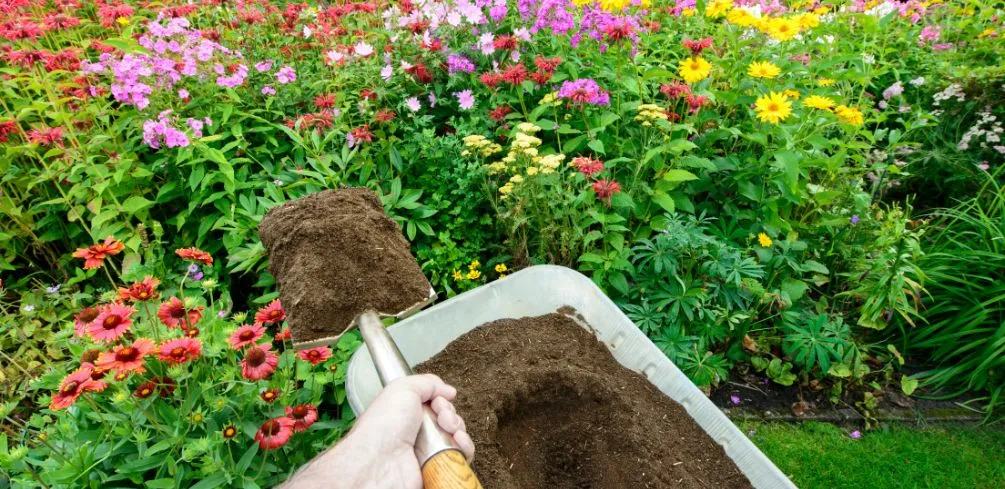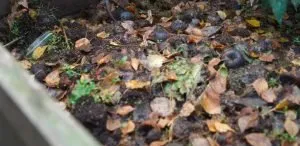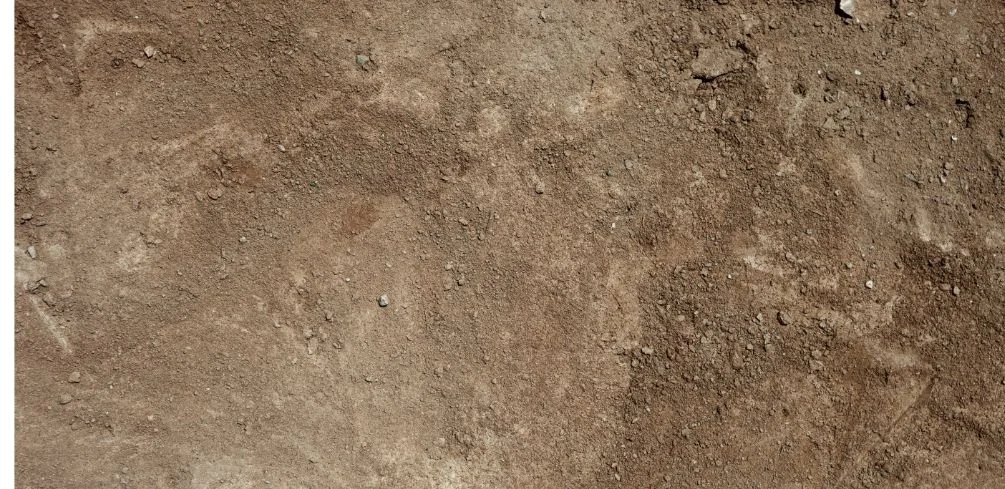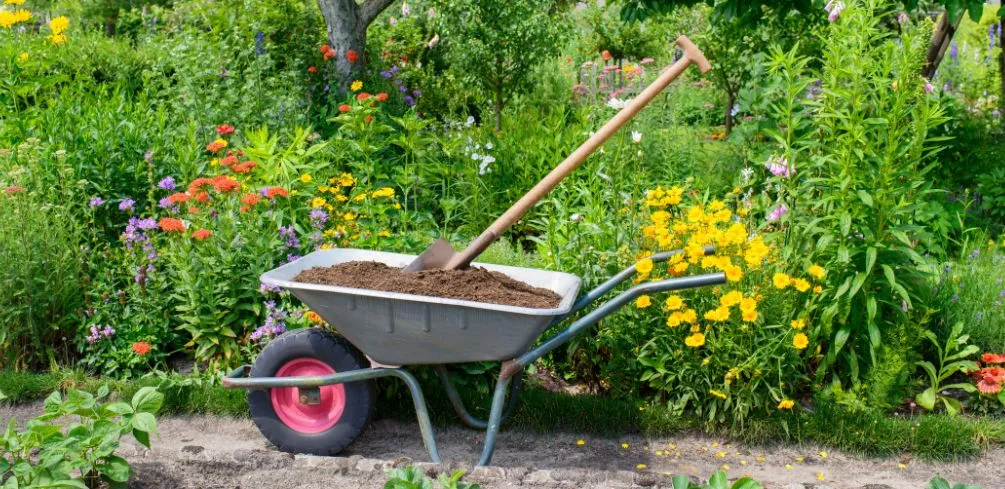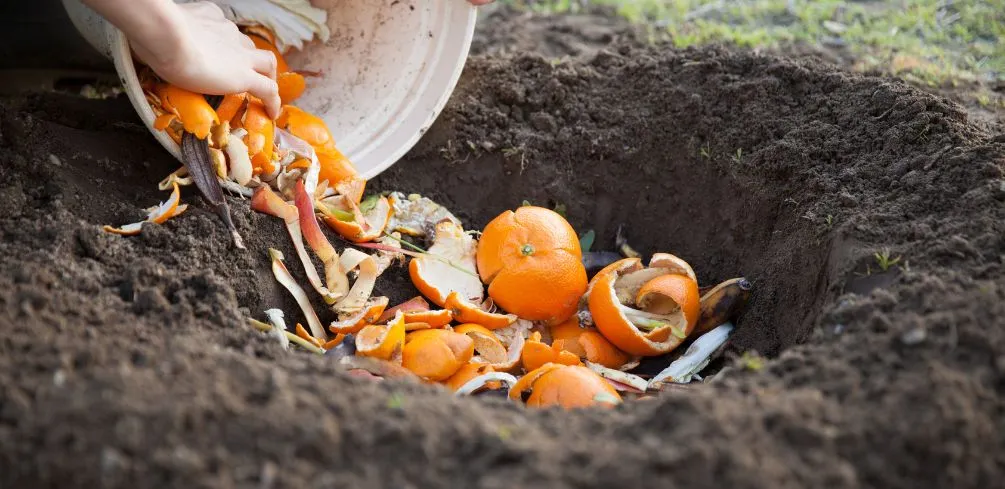Composting is a natural process in which organic materials are broken down into a nutrient-rich soil amendment. It is an environmentally-friendly way of managing waste and promoting healthy plant growth.
Compost can be used in various ways, including lawn fertilizer. Lawns are essential to many residential and commercial properties, providing aesthetic value and recreational space.
However, maintaining a healthy lawn requires proper care and attention. One crucial aspect of lawn maintenance is using fertilizers to promote growth and prevent disease. Composting offers an alternative to traditional chemical fertilizers that can harm the environment and human health.
This article will explore the benefits of composting for lawns and how it can contribute to sustainable landscaping practices.
The Benefits Of Using Compost On Lawns
A healthy lawn is the pride of every homeowner. It creates a beautiful view and gives a sense of belonging to the community. However, maintaining a healthy lawn requires effort and patience. One way to achieve this is by using compost.
Compost is a natural fertilizer that enriches the soil with nutrients and organic matter. Its application has numerous benefits for lawns. The benefits of using compost on lawns are vast. Firstly, it enhances soil structure, which leads to better water retention, aeration, and nutrient absorption. Secondly, it promotes root growth, making the lawn more resistant to drought and disease.
Additionally, compost improves soil pH levels which are critical for optimal nutrient uptake by plants. Application techniques vary depending on the amount of compost needed and the condition of the lawn. Generally, top-dressing or incorporating small amounts of compost into the soil through aerating or raking will produce good results.
Overall, using compost on lawns provides long-lasting benefits, making it an essential practice in modern landscaping techniques without compromising environmental sustainability.
Composting Basics For Lawn Care
As discussed in the previous section, using compost on lawns has numerous benefits. However, before diving into the application of compost, it is essential to understand the basics of composting.
Composting materials can range from food waste to yard trimmings and animal manure. These materials are broken down by microorganisms such as bacteria and fungi through a process called composting.
The composting process involves four main stages: the mesophilic stage, where bacteria break down complex organic matter. The thermophilic stage is where temperatures rise, and more microorganisms are introduced. The cooling stage is where temperatures decrease, and finally, the maturation stage is where the compost is left to fully mature.
By understanding these stages and ensuring proper conditions, such as moisture levels and oxygenation, one can effectively create nutrient-rich soil amendment for lawn care through composting.
How To Incorporate Compost Into Your Lawn Care Routine
Incorporating compost into your lawn care routine is an excellent way to improve soil health, increase water retention, and reduce the need for chemical fertilizers. However, it’s essential to understand the best methods for introducing compost into your lawn.
One of the most effective ways to apply compost is by topdressing or spreading a thin layer of compost over the grass blades. This technique ensures that the organic matter will directly contact the soil and gradually work its way down to enrich and aerate the root zone.
Mowing techniques also play a crucial role in incorporating compost into your lawn care routine. Mowing your lawn regularly but not too short is recommended as it can damage the grassroots and expose them to heat stress.
Additionally, leaving grass clippings on your lawn after mowing can provide a source of natural fertilizer as they contain essential nutrients such as nitrogen, phosphorus, and potassium.
Soil aeration is another critical step for incorporating compost effectively into your lawn care routine. Aeration helps reduce soil compaction and allows oxygen and water to penetrate deeper into the root zone, promoting healthy growth and reducing runoff during heavy rainfall.
Overall, integrating these practices can have significant benefits for both your lawn’s aesthetic appeal and environmental sustainability.
Sustainable Landscaping Practices With Composting
Composting methods can significantly enhance soil quality and promote sustainable landscaping practices. Composting involves the decomposition of organic matter, which results in nutrient-rich material that can be added to the soil.
Homeowners and landscapers can benefit from composting by utilizing organic waste such as food scraps, yard trimmings, and pet waste. These materials are broken down through aerobic or anaerobic processes, producing a natural fertilizer free from synthetic chemicals.
By incorporating compost into their lawns or gardens, individuals can improve soil quality and reduce the need for chemical fertilizers. Compost adds essential nutrients to the soil, increases its water-holding capacity, reduces erosion, and promotes healthy root growth.
Additionally, individuals can reduce greenhouse gas emissions by diverting organic waste from landfills while simultaneously creating a valuable resource for their landscaping needs. Overall, composting is an effective way to promote sustainable landscaping practices while cost-effectively improving soil quality.
Incorporating compost into landscaping practices is just one example of how individuals can positively impact the environment. We can promote healthier ecosystems and create more resilient communities by taking small steps toward sustainability.
Whether it’s through composting or other eco-friendly practices, everyone has a role in creating a more sustainable future for generations to come.
Comparing Chemical Fertilizers And Compost For Lawn Health
Sustainable landscaping practices with composting have become increasingly popular in recent years. Composting is an excellent way to recycle organic matter, such as grass clippings, leaves, and food scraps. This process reduces waste and produces a nutrient-rich soil amendment that can be used to improve soil health and promote plant growth.
One of the many benefits of using compost is that it helps reduce the need for chemical fertilizers. Composting vs. chemicals has been debated among landscapers and gardeners for decades. While chemical fertilizers provide an immediate boost of nutrients to plants, they can have long-term adverse effects on soil health and the environment.
These fertilizers contain high nitrogen, phosphorus, and potassium levels, which can cause soil acidification, nutrient imbalances, and water pollution. In contrast, compost provides a slow-release source of nutrients that improves soil structure and fertility over time without harming the environment.
Choosing compost over chemical fertilizers for lawn care can lead to healthier lawns while promoting sustainable landscaping practices.
Frequently Asked Questions
What Are The Best Types Of Compost For Lawns?
Composting methods vary in the types of compost produced, each with unique benefits for lawn health. The two main types are hot and cold composting, with hot composting producing a faster yield, while cold composting requires less maintenance.
Both methods involve breaking down organic materials such as grass clippings, leaves, and food scraps into nutrient-rich soil that can improve soil structure and water retention. Lawn health benefits include improved root growth, increased drought tolerance, and reduced need for chemical fertilizers.
When considering which type of compost to use on lawns, it is important to consider factors such as soil type, climate, and lawn care practices. By incorporating the right type of compost into lawn maintenance routines, homeowners can improve their lawns’ appearance and contribute to a more sustainable environment.
Can Too Much Compost Harm My Lawn?
A lawn is like a delicate ecosystem, where the soil composition is vital in maintaining its health and beauty. However, excessive use of compost can upset this balance and lead to various drawbacks that can harm your lawn.
While compost has several benefits for lawns, including improved nutrient content and water retention, using too much of it can cause issues such as soil compaction, poor drainage, and weeds or pathogens.
To prevent damage from excessive compost on lawns, it’s essential to follow some tips, such as applying it in moderation, avoiding compacting the soil by not walking on wet grass after fertilizing, and aerating the soil regularly to allow for proper drainage.
By balancing the benefits with the drawbacks and following these tips, you can ensure that your lawn remains healthy and vibrant without any adverse effects due to the overuse of compost.
How Often Should I Apply Compost To My Lawn?
The frequency of applying compost to lawns is crucial in maintaining their health and growth. Gardeners and lawn enthusiasts should aim to apply compost at least once every year, preferably during the fall season.
The benefits of regular compost application are numerous, including increased soil fertility, improved water retention capacity, and enhanced microbial activity. Compost also serves as a natural fertilizer that provides essential nutrients for the grass to thrive.
Moreover, it helps reduce soil erosion and promotes a healthier environment by reducing the need for chemical fertilizers and pesticides. Overall, understanding the significance of the frequency of applying compost to lawns is essential in achieving a lush and healthy outdoor space.
Can Compost Replace Other Lawn Care Practices, Such As Watering And Mowing?
A well-manicured lawn is like a canvas; every stroke of care contributes to its beauty. Composting benefits the environment by reducing waste and enriching soil health, but can it replace other traditional lawn maintenance practices such as watering and mowing?
While composting can improve soil quality and reduce the need for synthetic fertilizers, it cannot completely replace watering and mowing. Although, it can reduce the frequency of these practices by improving water retention in soil, which reduces the need for frequent watering.
Composting can also promote grass growth that requires less frequent mowing, resulting in lower maintenance costs. Incorporating compost into your lawn care routine can be an eco-friendly alternative to traditional methods while maintaining a healthy and lush lawn.
Is Composting More Cost-Effective Than Using Chemical Fertilizers On My Lawn?
The use of composting in lawn care offers various benefits over chemical fertilizers. Composting benefits include increased soil health, which leads to improved plant growth and resistance to diseases and pests.
Additionally, composting is more cost-effective than chemical fertilizers as it helps reduce water usage and eliminates the need for costly synthetic inputs. On the other hand, chemical fertilizers have several drawbacks, including soil erosion and contamination, which can harm the environment and human health.
Overall, composting is more sustainable and practical for lawn care than chemical fertilizers.
Conclusion
Composting has become an increasingly popular practice among homeowners looking for a natural and sustainable way to care for their lawns. The best types of compost for lawns include those rich in organic matter, such as leaf mold, grass clippings, and kitchen scraps.
However, it is crucial to be cautious when applying compost, as too much can harm the lawn. Experts recommend applying compost to the lawn once or twice a year, depending on the condition of the soil.
While composting can help reduce the need for chemical fertilizers, it cannot replace other essential lawn care practices such as watering and mowing. Additionally, although composting may require more effort initially than simply using chemical fertilizers, it can be more cost-effective in the long run.
One interesting statistic is that according to a study by the Environmental Protection Agency, yard trimmings and food waste makeup 28% of all solid waste produced in the United States. This staggering figure highlights the potential impact that composting can have on lawn care and reducing the overall waste production.
By incorporating composting into their lawn care routine, homeowners can contribute to a more sustainable future while reaping the benefits of healthier and greener lawns.
